We maintain the quality of the services that we offer to our clients since 1994, this gave us impetus and good reputation and status in the family of certified experts in Lebanon, in addition to a relationship based on mutual respect with the members of the Lebanese Association of Certified Public Accountants.
Difference Between Accounting & Auditing

Back to a fundamental question, what is the difference between accounting and auditing from a financial perspective?
A quick answer is: Accounting is a process of preparing the works, Auditing is a process of evaluating & scrutinizing of the work prepared.
In other words, accountants are in charge of the day-to-day duties of maintaining the accounts, implementing the board financial strategy, if any. At the end of the period, an accountant would produce Financial Statement, a summary report of the financial performance throughout the period. Whereas, an auditor would conduct a check on the accuracy of the financial statements, to ensure that there is no material misstatement of the financial statements prepared.
Read More
Our Team
Training
One of the most basic standards for an audit is that the auditor has to be trained to conduct the audit properly. He must be familiar with standard accounting principles as well as with business management and administration. In most cases, a degree in business or accounting, along with certification by organizations such as the American Institute of Certified Public Accountants, usually provides some verification of the auditor’s capabilities. The amount of experience the auditor has also indicates whether he is qualified.
Independence
Auditors must conduct audits independently, which means they have to remain objective throughout the audit process. If the auditor fails to remain objective, the results of the audit may be skewed toward the auditor’s preferences or beliefs and therefore will not represent what really is happening or what is best for the company. The auditor should not appear to be associated with the company’s interests outside of the audit.
Due Professional Care
Another characteristic of a proper audit is that the auditor uses due professional care. He uses all of his business and accounting knowledge to gather the information necessary to determine what is happening within the company to render a logical, unbiased opinion to managers. He also is careful not to reveal confidential information to unauthorized parties. This characteristic describes the auditors fiduciary duty to the company using his services.
Planning, Supervision and Sufficiency
Planning is the first phase of all audits. It is a major characteristic of audits because failure to plan results in the auditor being less efficient. Part of proper planning involves hiring any audit assistants necessary and supervising them well. As the auditor and his assistants progress through their audit plan, they must gather information sufficient to meet the audit’s objectives and support the opinions rendered.
Statements
If an audit is performed well, the auditor explains in his report whether the information received adheres to current accounting standards. He also details any circumstances that led the company to deviate from those standards if deviations are present. The auditor tells whether the information he has received is accurate and states a formal opinion about the results of the audit or shows why he couldn’t reach a conclusion
For Your Confidence In The Future
We are passionate about what we do and our aim is to share our enthusiasm with our clients, we are CPA but that does not mean we just make sure numbers are added up, we develop with our clients one of a practical trusted and practice advisor, our mission is to serve our clients with creativity and vision.
What skills will an Auditor in the Future Need?
THE FUNDAMENTALS
Strong technical and ethical characteristics are fun- damental to audit success. These are not new to anyone and should be considered a baseline set of characteristics that is expected of all auditors. A good auditor continues to build upon these over the course of a career through what our profession defines as our “commitment to lifelong learning.”
Throughout the auditor’s career, s/he must possess a strong ethical foundation and avoid any temptation to “let it pass” when a deeper review of an issue may reveal error or fraud.
This foundation holds true in the technical area as well. The auditor must maintain appropriate technical skills throughout his or her career. If the auditor is not current with the technical rules, s/he could easily miss something and issue an inappropriate opinion.
Our profession reinforces these two characteristics through required continuing professional education hours with numerous training sessions being available.
As important as technical and ethical characters are, these are only fundamental to success. These characteristics won’t set you apart. Good auditors also possess the following additional characteristics:
- Vision and instinct
- Able to see the big picture
- People skills
- Decision-making ability
- Leadership
- Superior communication skills.
VISION AND INSTINCT
As an auditor gains experience in working with numerous clients in multiple industries, a good auditors gains the ability to instinctively understand what the client’s business is all about. While carrying out the audit, s/he is able to determine a picture of any issues at the business and to translate them into what they might mean in the future. There is an anonymous quote that states that “in- stinct is the nose of the mind.” The good auditor does not settle when a client’s answer or transaction doesn’t seem right. Instinct causes him or her to dig deeper to arrive at a conclusion that fits with the vision of the business. To develop instinct and vision, the auditor must develop an inquiring mind and strive to learn from all experiences en- countered in client situations throughout his or her career.
ABLE TO SEE THE BIG PICTURE
Auditors need to be able to understand the client’s business and industry. This requires the ability to quickly frame a picture of the client’s business, the organization and key attributes within it. A good auditor is able to sort out connections and linkages within the organization to focus the audit approach. The ability to see this big picture is very important to the planning stages of the audit. Putting the audit plan together requires an appreciation and an under- standing of the organization and what constitutes a logical approach to the audit.
The audit checklist approach has a tendency to cloud the big picture because of the large number of ques- tions that are asked. Many auditors in their attempt to get all the questions completed typically do not take to time to step back and ask, “What does all this mean.” Good audi- tors will have a much shorter list of targeted questions that are developed specifically for their client which allows him or her to focus on the big picture.
PEOPLE SKILLS
The audit profession is not all about ticking and tying; it’s about people. Auditors need to have exceptional people skills. They need to have the ability to deal with all types of clients in all types of client situations. In certain cases, client personnel have a fear of the auditor because they don’t like someone looking over their shoulders. So the auditor must have the ability to put client personnel at ease and be able to empathize from the client perspective. It is also important for the auditor to show respect for the client. After all, it is the client who is paying for the audit.
The most often overlooked people skill is listening. Listening seems like a simple concept, but few do it well. Many auditors listen to hear the answer they want to hear rather than to listen for understanding. Most audit check- lists ask closed-ended questions which prevent the client form elaborating on a situation. When the client does ex- pand their answer, the auditor must “hear” the client’s an- swer completely; missing one small piece of the answer can cause them to miss the message entirely.
Lastly, people skills are also very important within your firm and on your audit team. Auditors need to be team players as the entire team is working toward a common goal.
DECISION-MAKING ABILITY
Once the audit evidence is accumulated, the auditor needs to determine what is relevant and what is not.
Making these decisions is, at times, not easy as there is so much information is accumulated and tying it all together can be a challenge.
Decision making can be hard. Most every decision involves some conflict or tradeoff. The challenging part is to select the best decision given the information that you have gathered to assist with the decision. There is a tendency to put off the decision by concluding that you need more in- formation, only to again later conclude that you need even more information. This decision paralysis can cause the au- dit to drag on and on and can ultimately cause the auditor to feel pushed to the wall as they now must make a decision because the client needs their financial statements immedi- ately. Clients want their auditor to be strong and effective decision makers. Waffling around on a decision causes the client to lose confidence in their auditor.
LEADERSHIP
Great leaders have the desire to help others succeed. Henry Ford said, “Don’t find fault, find a remedy.” This statement is a classic in the context of leadership; leaders find solutions, they don’t place blame. An auditor that is a leader finds solutions to complex problems at the client and has the ability and skill to assist in getting the solutions implemented.
A good auditor must strive to become a successful leader. Leadership characteristics can be taught but leader- ship must be earned day in and day out. Leadership is seen by the client as the auditor being a teacher and/or a trusted confidant. An audit staff member sees a leader as a mentor and coach.
No single audit or audit firm, for that matter, can rise above the quality of its leadership. A common theme on every well-run audit or well-run audit firm can be directly linked to leadership.
SUPERIOR COMMUNICATION SKILLS
Superior communication skills allow auditors to have connection and rapport with others on the staff, man- agers, partners, and clients. The technological world in which we live today can negatively impact the audit staff’s ability to become an effective communicator, especially when e-mail becomes a substitute for face-to-face commu- nication with audit clients.
A good auditor recognizes the importance of face- to-face communication and strives to make it the primary mode of communication. It is essential that all auditors work to make verbal communication a priority rather than a last resort. In most cases, e-mail should be the last resort rather than the first resort.
Clients want to talk to the auditor, and the better the auditor is at effective communication, the better the conversation is with the client. Effective communication oc- curs when the client understands exactly what you are say- ing. Achieving this is not easy but once achieved, it will set you apart from the rest.
CONCLUSION
The characteristics of a good auditor start with the basics of sound technical ability and solid ethical founda- tion. A good auditor considers those as baseline and work to grow beyond the “rules and regulations” mindset of our profession. Attaining and maintaining the characteristics mentioned in this article require a personal commitment but are crucial to the auditor’s long term success. Have you got what it takes to be a good auditor?








